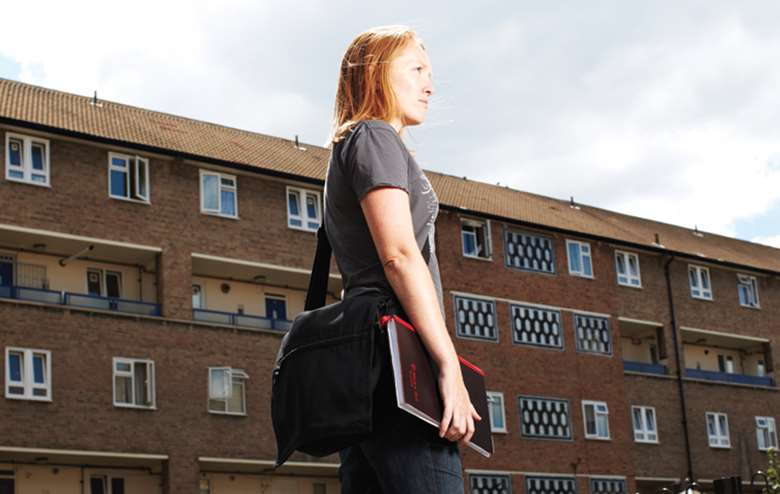Social workers advised to visit homes for six months in suspected abuse cases
Neil Puffett
Wednesday, February 22, 2017
Social workers should consider home visits for at least six months if there are suspicions that a child is being abused or neglected, new guidance has suggested.

A draft document published by the National Institute for Health and Care Excellence (Nice) states that a number of studies have shown the intervention to be effective, suggesting it should not require much additional investment.
The guidance, which is designed to help more professionals recognise and respond to forms of abuse and neglect, sets out the kind of work that home visits should involve, including developing the relationship between the child and parents, helping parents develop problem-solving skills and supporting parents who have substance misuse or mental health problems.
It also outlines a range of indicators that professionals should consider as potential signs of abuse including excessive "clinginess", recurrent nightmares, low self-esteem and frequent rage at minor provocations.
It says staff should be aware of these "soft signs" and make judgments based on what they know about how each child usually behaves and whether it differs from what would normally be expected for their age.
Indicators that should trigger serious concern that abuse may be taking place include a child regularly arriving at school unclean or with injuries, overtly sexual behaviour in pre-pubescent children, or parents carrying out excessive physical punishment.
Nice has previously produced guidance for health professionals on recognising common signs of maltreatment which was published in 2009.
The new guidance, which is out to consultation until 19 April, aims to provide advice for anyone who works with children outside health settings, including social care professionals and staff working in education or custodial settings. The full document extends to 581 pages.
Professor Corinne May-Chahal, a researcher in child protection at Lancaster University and chair of the committee developing the guideline, said: "Our awareness of the different forms of child abuse and neglect is developing all the time but it is difficult for professionals to keep track of the best ways to assess abuse and intervene effectively.
"This guideline is important as it will help professionals spot the warning signs and then focus on what early help and interventions can be provided.
"The guideline gives examples of soft signs, the behaviours or emotions a child is exhibiting, which could indicate something may be wrong.
"These may not always be proof of abuse or neglect taking place, but they underline when to check on a child's wellbeing. It also provides further context on stronger signs that should trigger professionals to take a more in-depth look at the child's circumstances and welfare."
Professor Gillian Leng, deputy chief executive at Nice, said: "Anyone working with children has to play their part in responding to abuse or neglect. Our previous guidance for this area focused on health professionals. Now we want to help staff outside of hospitals recognise when a child may be at risk of harm.
"We want all professionals to be aware and recognise when they need to ask questions or follow up with colleagues about a child's wellbeing. Not all cases will cause concern but if we do not ask, we may miss opportunities to protect children in their time of need.
"This guideline will sit alongside existing statutory guidance providing important context on what works to help vulnerable children in the aftermath of abuse or neglect."




